Katia Alexandrovskaya barely uttered a word to Harley Windsor on the day they met at an ice-rink in Moscow.
She didn’t speak English and he didn’t speak Russian, but that wasn’t the reason.
Her head was still aching from having drunk herself into a blackout with vodka the day before, a day she would later confide to a friend was the worst of her life.
The vodka was meant to be a gift for her figure-skating coach, but, as Katia would explain years later, grief-stricken, she drank most of it to mark the first anniversary of her father’s death.
She was 15, and at the start of what should have been an adventure: she was about to move, without her mother, to Australia to become an Olympic athlete, the partner of the first Indigenous Australian winter Olympian. She was fast-tracked for citizenship under a program designed to help Australia recruit sportspeople to boost the nation’s medal hopes.
Last month, Alexandrovskaya was found dead on a Moscow pavement outside the apartment building where she lived with her mother on the sixth floor. She was 20. The note she left inside the flat read simply: “I love.”
Family, friends and colleagues interviewed for this joint investigation by The Australian and The Saturday and Sunday Telegraphs say her death has exposed serious weaknesses of accountability, funding and welfare in sport, including the management of concussion in the harshest and most decorative of pursuits: figure skating.
Her short life raises questions over the practice of trading athletes — often in their early teens — between countries; a system world athletics boss Sebastian Coe says is “human trafficking”. Her death has sparked international blame over who had responsibility for her welfare, and that of other young athletes who move countries under “transfer of allegiance” protocols.
Friends also reveal concerns about Alexandrovskaya’s life, including a suggestion she was sometimes bruised by criticism from her sharp-tongued former coach, Russian-born Sydneysider Andrei Pachin. A friend says Alexandrovskaya told her she sometimes avoided Pachin when his old-school, hard style of coaching became too much.
Skating insiders describe Pachin and his wife Galina as classic Russian coaches: tough and blunt, but passionate about helping skaters succeed. After a sudden funding cut from the Olympic Winter Institute on May 22 last year, Alexandrovskaya barely had a cent to feed herself, was sleeping on couches, unable to afford rent in Sydney, and developing a serious drinking problem. More than a month after she perished, there has still not been an official investigation into her death.
Culture of silence
Alexandrovskaya’s skating mentor, Belinda Noonan, a former Australian figure-skating champion who describes herself as the young woman’s “Australian mum”, says: “We must do better for our young people. We have to care about the people more than we care about the result.”
Australian skating champion Greg Merriman, another mentor and friend who raised $12,500 for Alexandrovskaya’s funeral, says: “Everybody could have done more. It starts at the top.”
He says team officials “should have given more of a shit about the person than what they were trying to get out of her”.
“It’s the culture of silence in sport,” he says. “People sit silently, because if you do something you might stop that person from achieving something.”
In early 2017 Alexandrovskaya suffered the first of what appeared to be a seizure. It was a Monday afternoon at the Macquarie Centre mall in northern Sydney. A stranger who saw her faint called an ambulance but Alexandrovskaya brushed away the paramedics, saying she was OK.
Coach Galina Pachin, wife of Andrei Pachin, was not with Alexandrovskaya at the time. She says she was concerned but accepted Katia’s reassurances. Also in early 2017, she crashed to the ice during training and was concussed, not for the first time, but Alexandrovskaya resisted any fuss. That, say friends and family, was the pattern: a fall, literal or figurative, a reassurance Alexandrovskaya was OK, and no official action taken.
Alexandrovskaya’s second apparent seizure, in 2017, occurred at a shopping centre in Sydney’s northwestern suburb of Castle Hill, after a long day of training.
“My head is spinning,” Alexandrovskaya said softly to Galina Pachin. She blacked out and fell into Galina’s arms.
“She had another seizure. That time I said, look we have to go to hospital,” Galina said. The doctors suspected it was dehydration and low potassium. Galina worried it was more than that. Alexandrovskaya had been found sleepwalking in their home. Something wasn’t right.
It was Galina who called Alexandrovskaya’s mother in Russia and said her daughter needed a “good check up”. “There is something wrong with her, what if she collapses on the ice?”
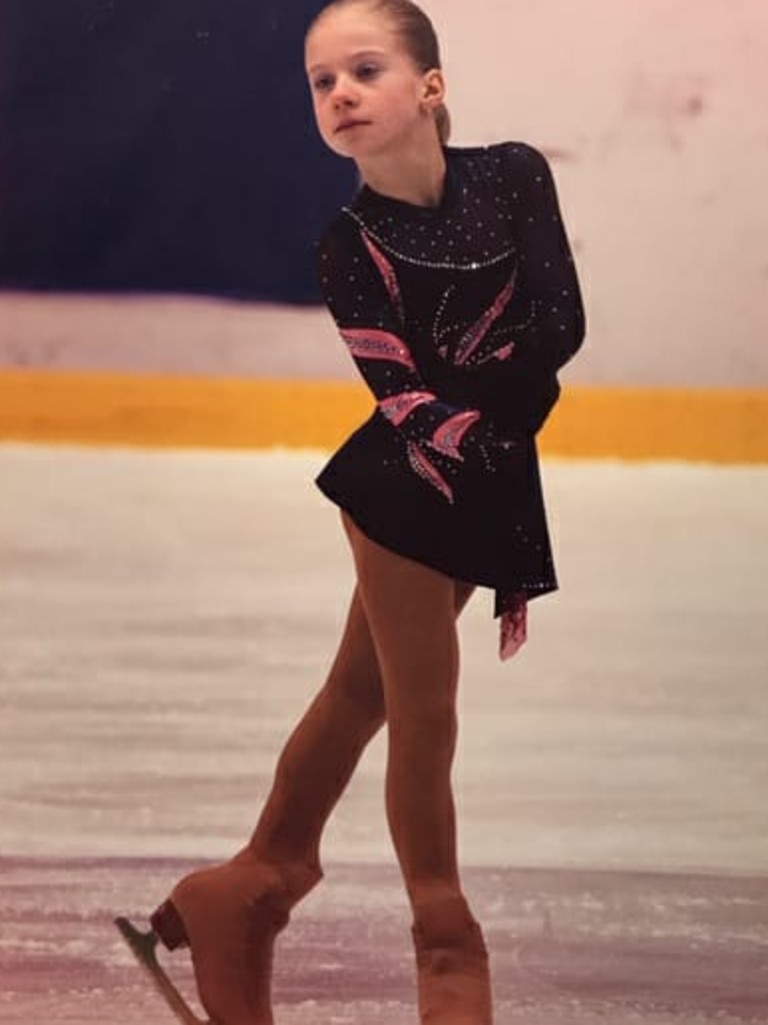
The lucky ticket
Ice had been Alexandrovskaya’s playground since she was three years old. A natural athlete, her mother encouraged her into the sport. Friends say she didn’t always love skating but appeared to thrive as a pre-teen and young adolescent, even under the hard-driving Russian training methods.
She was a member of one of the best pairs skating squads in Russia in December 2015, when she was asked to audition before coaches Galina and Andrei Pachin and their young star Harley Windsor, in Moscow on a scouting trip. “Katia says (the day before), that was the worst day of my life. Not only did she drink this stuff — like kids go and do — but she didn’t honour her coach,” Noonan says.
“But she also said: ‘And the next day, I met Harley and it was the best day of my life’.” The pair bonded immediately. “It was like a lucky ticket,” Galina Pachin says.
Merriman says Alexandrovskaya was too young and too vulnerable for the move. “She was not only a baby,” he says. “She was a broken baby.”
Alexandrovskaya moved in January 2016, just after her 16th birthday, and lived with the Pachins in Sydney. Galina says she and her husband warmly welcomed the quiet teen into their home. It was a spacious house, with a pool. There were BBQs and parties with their Russian friends and “skating mums”.
“She became like a part of our family,” Galina says. “We tried to make her comfortable, we tried to take her everywhere we go.
“She was not easy-going person, she was very stubborn sometimes, but she was quite respectful, sometimes bubbly, she would go and swim in the pool and help me cook something, trying to be part of what we were doing.
“With us, she was OK. She was quite friendly, sometimes she would miss her home, but you know, you would never, ever see it in Katia, she would never whinge, never say, I miss my mum. She would never say that. She tried to adjust to the condition and life where she was.”
Within a year it was clear she had an uneasy professional relationship with Andrei, who Merriman says had a typically Russian style of speaking to skaters. “The weight of expectation on the athletes was ridiculous really,” Merriman says.
Taking it up a notch
Galina says she and Andrei were brought up in the firm, frank, Russian style of coaching. “Katia from day one was brought up in the Russian style, the Russian system and because both of us, Andrei and myself, are from the Russian system, coached by Russian coaches.”
After winning the world junior title in Taipei in September 2016, Windsor and Alexandrovskaya had to take everything up a notch, training harder and doing more complex routines.
“We were learning new throws, and taking a lot of falls, she started to get a really bad haematoma on the side of her hip and she tore part of her hip,” Windsor says. “We were trying new lifts at the beginning of the season and she fell from one of the top of the lifts. It wasn’t a very serious concussion. I did catch her on the way down.” A doctor ordered a few days of rest.
It wasn’t long after that Alexandrovskaya started taking tumbles away from the rink. Galina says she spoke to a doctor at the Australian Institute of Sport but Alexandrovskaya’s only interest was the Olympics. “I spoke to a sports doctor at the AIS, we tried to work it out what is wrong with her.”
Galina was still concerned. “I speak to the doctor again and they said, did they check her head? Maybe something is wrong there?” she says.
“When I was talking to the specialist and doctors, they were telling me that looks like symptoms of epilepsy.”
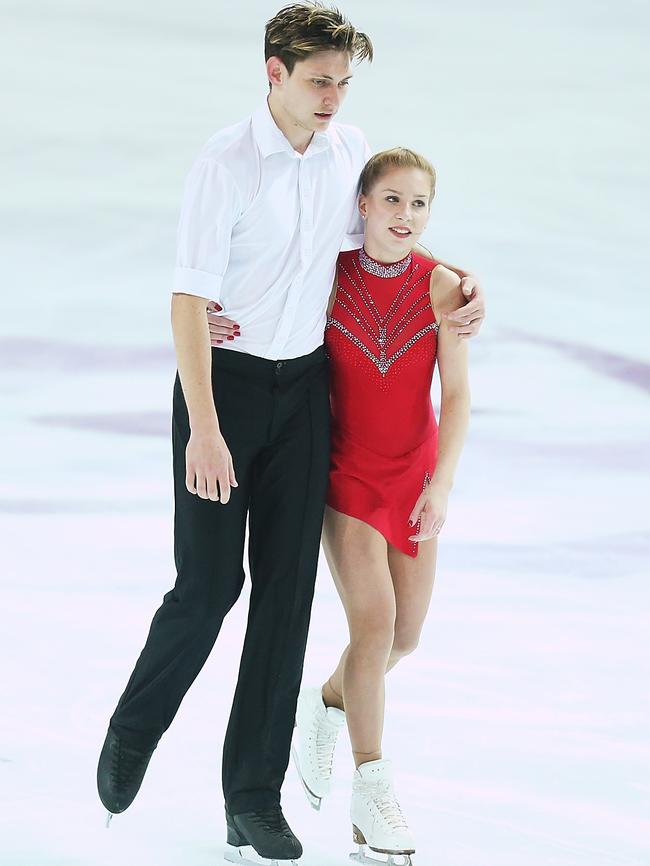
Drive to succeed
In October 2017, they qualified for the Olympics. Alexandrovskaya’s Australian citizenship was rushed through and in February 2018 they were on the Olympic ice at Pyeonchang, South Korea.
“It was like breathing,” Windsor says. “We both knew what we had to do. There was not a doubt in our mind. We were on autopilot.”
They finished 18th and set their sights on 2022 before things started to unravel. They split from the Pachins and Alexandrovskaya never spoke with them again.
Noonan says Alexandrovskaya confided in her she was afraid of Andrei’s harsh words.
Alexandrovskaya and Windsor briefly relocated to Canada before returning for the national championships in December 2018 at the Macquarie Ice Rink. It was then that Noonan noticed she had missed a series of calls. Alexandrovskaya could barely afford rent so was sleeping on lounges. She worked at the Canterbury Ice Rink, helping with children’s parties and in the canteen. “She loved that job,” Noonan says. “She was so happy and was making so many friends for the first time.”
Noonan says whenever Alexandrovskaya went to the city for training she would take the girl to a supermarket and buy her food.
“It’s all very well and good to have funding that would cover competitions and coaches but you have to be able to afford to eat.”
At Canterbury Ice Rink, the owners let them practice for free with loaned boots and blades.
“In a minority sport, you are doing it on your own,” Merriman says. “When we heard … that her father had died, the mum wasn’t in a great financial position, Harley wasn’t in a great financial position … is that situation ever actually going to work? For their early coaching team, it was a focus on achievement. It was a million miles an hour trying to get there.”
Surviving day to day
Alexandrovskaya’s drinking became heavier. It is understood there were times when she was so inebriated, Windsor had to help her on to planes.
Merriman agreed to help them with their skating program, as a mentor, but he was worried about their wellbeing.
“It sort of scares me to say it, I had a tip-off from someone outside the ice rink, that she was potentially drinking a lot,” Merriman says. “We came to discover she was showing up to training not in a great state.
“Trying to monitor that and then making sure she gets X, Y, Z done on the ice. There were days I would just report back (to their Russian coach Andrei Khekalo) they were getting the stuff done, but not getting her to do it because she wasn’t in the right space.
“There had been stories for a couple of years about her outside habits. Most people hadn’t taken it seriously. Belinda stepped right in.”
Noonan says she took Alexandrovskaya to a clinical psychologist who specialised in alcohol dependency — but then came another blow.
“Their funding was yanked in May 2019,” Noonan says. “That changed the ball game. Harley’s sister Sharon (Windsor) was doing everything she could, I was doing everything I could, every time we could save money, get money … it’s just heartbreaking.”
Windsor says: “If we wanted to see a physio, we couldn’t. If we need a sauna to recover in, we didn’t have the funding to do it. We were surviving day to day.”
No one foresaw what happened next.
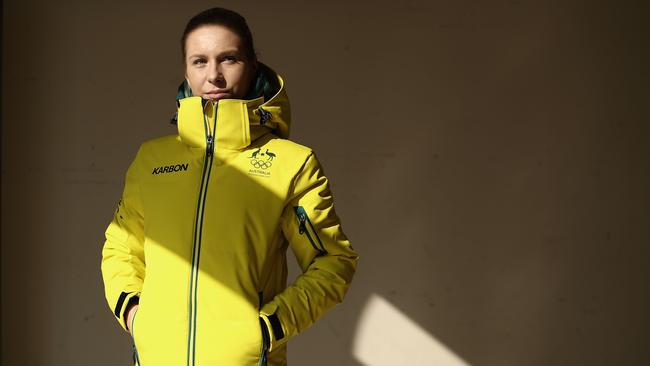
Going down hill
Late last year, when the pair were training in Moscow, Alexandrovskaya called Windsor to say she couldn’t go to the rink because she was unwell.
According to Windsor, Khekalo and Galina Pachin, Alexandrovskaya was admitted to a Moscow hospital in January. She spent two weeks under observation and was diagnosed with epilepsy. The doctors told her she couldn’t skate again because it was too dangerous.
“I don’t want to stop skating,” she protested. “It’s not that bad.”
Their coach Andrei Khekalo thought she could continue, saying in an interview for this investigation: “I have repeatedly tried to convince them (that by stopping skating) that they made the wrong decision, but without results.”
Windsor was not so sure after listening to the doctors so told Alexandrovskaya it was over and returned to Australia. He says he had planned to go back to Moscow but was prevented when COVID-19 struck. “Of course she was upset, it’s not something you give up easily,” Windsor says. “I was stuck in Australia. Things started getting a bit worse with Katia.”
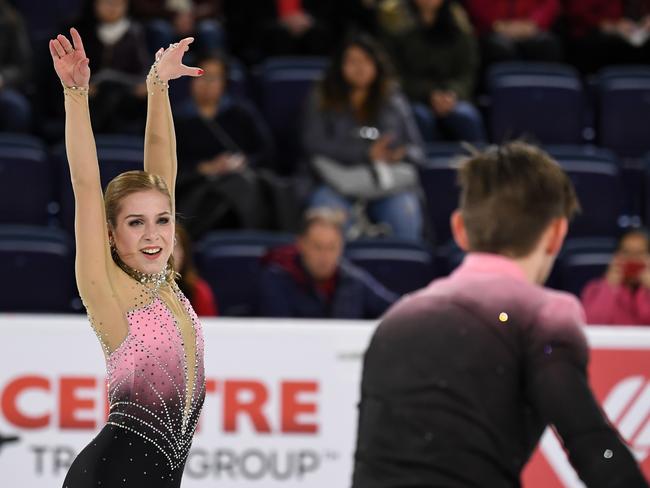
‘A terrible, terrible loss’
The last time the pair spoke was around May, “a month or so before everything happened”.
“Everyone was struggling being in quarantine, it was a big struggle for everyone to go from being normal and then stuck at home doing nothing — especially athletes,” Windsor says. “We had been conditioned to doing so much for so many years and then the whole world has to stop?”
Noonan and Windsor’s sisters sent flowers to try to lift her spirits, which she placed near her world junior championships gold medal.
“Every four or five weeks I would send her a (WhatsApp) message with a ‘Hi, how are you doing?’” Noonan says.
“She would always write back with a ‘good, how are you’, every time … I really should have picked up the phone and not done short texts.”
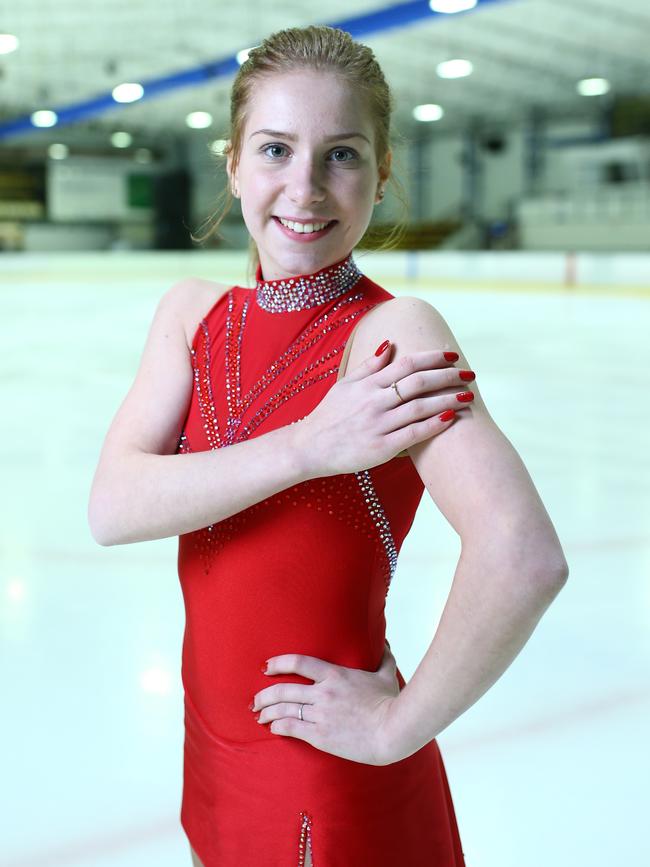
On July 17, Alexandrovskaya was found dead.
“At the absolute bottom of my soul, do I think she purposely went out that window? No I don’t and I still don’t,” Noonan says.
“Do I think there could have been an episode? I think that could have been because she was diagnosed with epilepsy in January. I have those Russian medical reports.”
Windsor found out about Alexandrovskaya’s death through a text message, sent by her uncle, Fedor Boichenko. “It’s not real, it must be a mistake,” he said to himself. He tried calling Katia’s phone: “There was no answer.
“Then it started to hit me, I was like ‘holy shit, I don’t even know what to think right now’. I was trying to call people to find out more information but no one knew any more information.
“She was willing to do anything, she was 15 when she decided to go to another country and skate for another country, determined, hardworking, a lot of people loved her.”
Windsor, now training in France, is still searching for a pairs partner.
Peter Lynch, president of Ice Skating Australia, says Katia’s death has devastated the sport. “They were literally the stars of figure skating in Australia and it’s a terrible, terrible loss the whole sport has suffered.”
Merriman’s assessment of her legacy is blunt. “A lot of people are like; ‘Katia achieved a lot in her time’. I am like, ‘Yeah, but she also threw herself out a window’.
“You know what would have been better than a junior gold medal and going to an Olympics? Living past 20 and being happy.”
Do you have information on this topic? Confidentially contact Jessica Halloran and Julian Linden - jessica.halloran@news.com.au and julian.linden@news.com.au to share your story
If you or someone you know is struggling, call Lifeline 13 11 14.

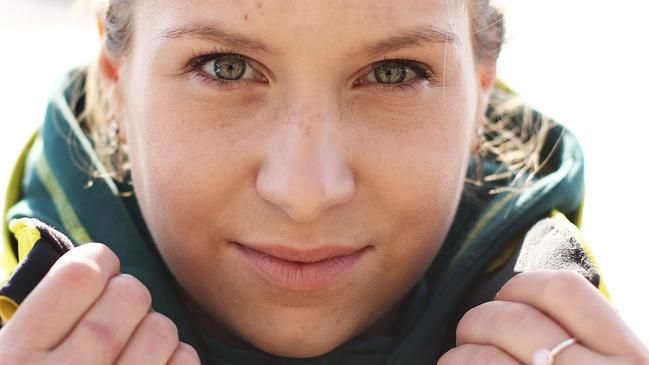
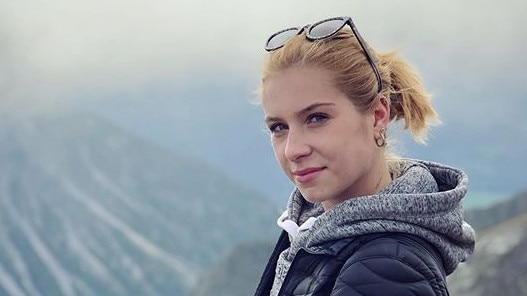
More Coverage
Add your comment to this story
To join the conversation, please log in. Don't have an account? Register
Join the conversation, you are commenting as Logout